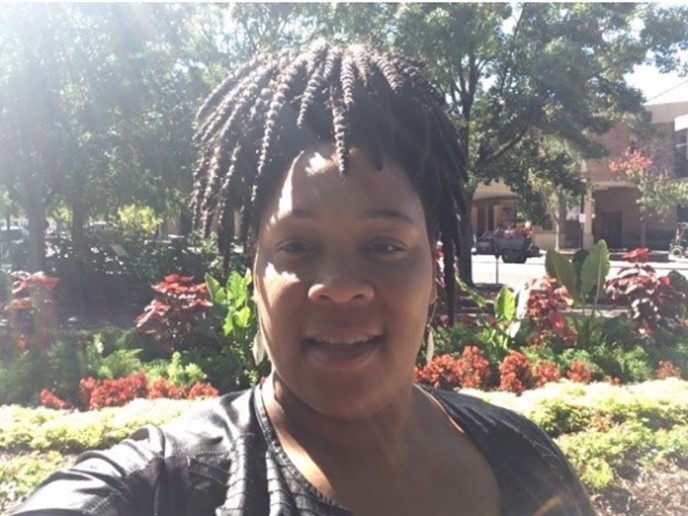Community Voice
Danielle Campbell has been part of the ACTG for nearly 10 years; her earliest experiences of HIV activism began with her becoming a member of the UCLA CARE Center Community Advisory Board.
Throughout her tenure with the ACTG, Danielle has served in several leadership capacities, including Chair of the Community Women’s Working Group also known as “Team Women,” Community Scientific Subcommittee (CSS) representative to the Network Scientific Steering Agenda Committee (SASC), and member of the Community Steering Committee. Her work within the ACTG has centered around the meaningful inclusion, enrollment, and retention of women, a global population disproportionally affected by HIV, in network studies.
“As community, we work in partnership with Network leadership and member scientists to ensure that the perspective of communities living with HIV are centrally considered and incorporated within the science endeavors of the ACTG,” said Danielle. “This is accomplished by community members’ participation on research protocol teams, collaborative and transformative science groups, and other committees within the network.”
Working with Stanford, Danielle reports that they continue their duties on the monkeypox study as community scientific subcommittee members involved in all study development activities, reviewing and providing feedback on study documents, flyers, websites, protocol, and other scientific activities. “It is important for me to work on the STOMP study to help do my part in representing communities affected by monkeypox,” she said. “It is REALLY important to share the information I learn to raise awareness about monkeypox virus with those in my community who are at highest risk. It is my hope that people with monkeypox have an effective treatment and that our efforts as part of STOMP will bring us one step closer to developing that treatment.”
STOMP is investigating the safety and efficacy of tecrovirimat for the treatment of human monkeypox virus. For more information, please visit the study website or contact the call center at 1-855-876-9997.
